第5章 CHAPTER II(1)
SOON after I was seven years old, I went to what was then, and is still, one of the most favoured of preparatory schools - Temple Grove - at East Sheen, then kept by Dr. Pinkney. I was taken thither from Holkham by a great friend of my father's, General Sir Ronald Ferguson, whose statue now adorns one of the niches in the facade of Wellington College.
The school contained about 120 boys; but I cannot name any one of the lot who afterwards achieved distinction. There were three Macaulays there, nephews of the historian - Aulay, Kenneth, and Hector. But I have lost sight of all.
Temple Grove was a typical private school of that period.
The type is familiar to everyone in its photograph as Dotheboys Hall. The progress of the last century in many directions is great indeed; but in few is it greater than in the comfort and the cleanliness of our modern schools. The luxury enjoyed by the present boy is a constant source of astonishment to us grandfathers. We were half starved, we were exceedingly dirty, we were systematically bullied, and we were flogged and caned as though the master's pleasure was in inverse ratio to ours. The inscription on the threshold should have been 'Cave canem.'
We began our day as at Dotheboys Hall with two large spoonfuls of sulphur and treacle. After an hour's lessons we breakfasted on one bowl of milk - 'Skyblue' we called it - and one hunch of buttered bread, unbuttered at discretion.
Our dinner began with pudding - generally rice - to save the butcher's bill. Then mutton - which was quite capable of taking care of itself. Our only other meal was a basin of 'Skyblue' and bread as before.
As to cleanliness, I never had a bath, never bathed (at the school) during the two years I was there. On Saturday nights, before bed, our feet were washed by the housemaids, in tubs round which half a dozen of us sat at a time. Woe to the last comers! for the water was never changed. How we survived the food, or rather the want of it, is a marvel.
Fortunately for me, I used to discover, when I got into bed, a thickly buttered crust under my pillow. I believed, I never quite made sure, (for the act was not admissible), that my good fairy was a fiery-haired lassie (we called her 'Carrots,' though I had my doubts as to this being her Christian name) who hailed from Norfolk. I see her now: her jolly, round, shining face, her extensive mouth, her ample person. I recall, with more pleasure than I then endured, the cordial hugs she surreptitiously bestowed upon me when we met by accident in the passages. Kind, affectionate 'Carrots'! Thy heart was as bounteous as thy bosom. May the tenderness of both have met with their earthly deserts; and mayest thou have shared to the full the pleasures thou wast ever ready to impart!
There were no railways in those times. It amuses me to see people nowadays travelling by coach, for pleasure. How many lives must have been shortened by long winter journeys in those horrible coaches. The inside passengers were hardly better off than the outside. The corpulent and heavy occupied the scanty space allotted to the weak and small - crushed them, slept on them, snored over them, and monopolised the straw which was supposed to keep their feet warm.
A pachydermatous old lady would insist upon an open window.
A wheezy consumptive invalid would insist on a closed one.
Everybody's legs were in their own, and in every other body's, way. So that when the distance was great and time precious, people avoided coaching, and remained where they were.
For this reason, if a short holiday was given - less than a week say - Norfolk was too far off; and I was not permitted to spend it at Holkham. I generally went to Charles Fox's at Addison Road, or to Holland House. Lord Holland was a great friend of my father's; but, if Creevey is to be trusted - which, as a rule, my recollection of him would permit me to doubt, though perhaps not in this instance - Lord Holland did not go to Holkham because of my father's dislike to Lady Holland.